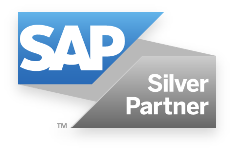5 ERP benefits in a service-led business

There’s something of an appetite for new technology in the field service industry at the moment. Thanks to trends like the cloud, mobile and big data, organisations are starting to see much more potential in their service teams to act as engines of revenue: teams empowered with the right technology to drive performance and profitability, and not just break even.
An ERP solution like SAP Business One can underpin all of this. It’s great for mobile connectivity, performance management, and solving countless problems around scheduling, job costing and more. The trouble is, small and medium-sized companies are often reluctant to go ahead with an ERP implementation – they see it as too big, too scary, and possibly even something they can approximate with a patchwork of other solutions.
{{cta(‘a95cf4a7-bb08-4a9b-94fa-68af2c252b9c’)}}
Sounds like a familiar problem? Here are five ERP benefits in a service-led business that prove their assumptions are wide of the mark.
1. ERP is a single, integrated solution
It’d be remiss of us not to mention that ERP isn’t the only solution that meets the needs of the field service industry. Right now, the market for field service management (FSM) software is booming – it’s worth $1.58 billion today and will be worth $3.5 billion by 2019, according to research from MarketsandMarkets. So, with a growing range of simple vertical solutions available, why should a business spend more for ERP?
Well, there are benefits to using a single, integrated solution. Getting FSM software to work together with other business tools can be difficult, whereas ERP delivers seamless integration between accounting, stock control, scheduling, HR and so on. It also offers greater ease of access to support (with only one phone number to call), and a more consistent look and feel than a patchwork of different solutions could feasibly provide.
Note that we’ve created a whole other blog on this topic, which you can read here: The difference between ERP and FSM software.
2. ERP is great for reporting
Chances are, a growing service-led business will want more from its software than mobile connectivity and drag-and-drop scheduling tools alone. ERP also meets the needs of senior managers who require a top-down, 360-degree view of the business, and insight into how different functions – such as sales, procurement and service teams in the field – contribute to its overall profitability.
3. ERP makes life easier for service teams
And, of course, ERP makes life easier for service teams themselves. With the right field service functionality (generally delivered as an add-on for off-the-shelf software), service managers can simplify and even automate basic scheduling tasks – making it trivial to get the right engineer to the right place at the right time. On the ground floor, those engineers get mobile access to customer and site information, tools to identify and act on upsell opportunities, and less paperwork.
{{cta(‘537bcbb2-d3fb-4577-8958-25d3000884b9’)}}
4. ERP helps with compliance
Demanding SLAs are common in the field service industry. This is partly because a service-led business will often be hired specifically to help the client fulfil a regulatory requirement – there’s a wide range of work equipment that requires regular monitoring and maintenance under UK law, and failing to provide this could land the owner a massive fine for non-compliance.
An ERP solution with specialist FSM functionality should make it easier for the business to uphold these SLAs, with sophisticated scheduling tools offering the means to avoid late and missed service calls where possible. Moreover, the end-to-end paper trail created in ERP enables users to quickly and easily demonstrate their compliance credentials to auditors.
5. ERP sets the stage for business growth
Finally, ERP is future-proof. In any industry, a growing business will eventually run into headaches around the continued use of basic accounting tools and spreadsheets: lost time, human error, lack of support and so on. Implemented correctly, a fully-fledged ERP solution will solve these problems both in the short and long term.
So, even if a simple vertical solution will do the job today, the business should ask itself: How will our needs change in the future? And how long will it be before we next require a costly technology upgrade?
{{cta(’40e62ee4-6a3e-4749-a54a-02f0404cafd3′)}}
{{cta(‘1e74783a-facf-495d-adba-6cc45e26b9b2’)}}

